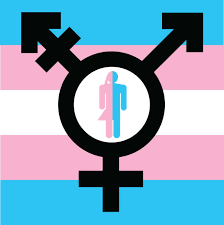Hormone Replacement Therapy (HRT) has become a common treatment for various hormonal imbalances, particularly among those undergoing menopause or transitioning genders. However, one of the most frequent questions surrounding HRT is its impact on fertility. Many individuals are concerned about whether starting HRT could lead to infertility or impact their chances of conceiving in the future. In this article, we’ll dig into the relationship between HRT and fertility, debunk some myths, and provide guidance on what to consider if you’re contemplating starting HRT.
Understanding HRT: What It Is and How It Works
HRT involves the administration of hormones to restore the balance of hormones in the body, particularly estrogen and progesterone for women, and testosterone for men. This therapy can help alleviate symptoms associated with hormonal changes, such as hot flashes, mood swings, and vaginal dryness, making life much more manageable for those affected. It can also be beneficial for transgender individuals undergoing gender transition, providing the hormonal support necessary for physical changes.What Happens When A Male Stops Taking Female HormonesEstrogen Boosters
The way HRT works is relatively straightforward: it supplements the body’s natural hormone levels that may be low or absent due to aging, surgery, or other medical conditions. By introducing these hormones, HRT aims to provide relief from uncomfortable symptoms and improve the quality of life. However, because hormones also play a crucial role in the reproductive system, many worry that HRT might affect their ability to conceive.
Infertility Myths: Separating Fact from Fiction
There are many misconceptions about the effects of HRT on fertility. One common myth is that anyone on HRT will automatically become infertile, but this isn’t necessarily true. While HRT can affect ovulation and sperm production, its impact varies depending on the type of hormones taken and the individual’s specific circumstances. Some people might experience temporary changes in their fertility while on HRT, but this doesn’t lead to permanent infertility in all cases.
Another prevalent myth is that HRT is solely responsible for infertility. While hormonal imbalances can influence reproductive health, infertility is a complex issue often involving multiple factors, including age, underlying health conditions, and lifestyle choices. Therefore, it’s essential to consider HRT within the broader context of an individual’s overall health and reproductive goals.
How HRT Affects Your Reproductive System
HRT can have different effects on the reproductive system depending on the individual’s starting hormonal levels and the type of therapy administered. For instance, estrogen-containing HRT can inhibit ovulation in women, which might make it challenging to conceive while on the therapy. This is particularly relevant for those who have not yet completed their families and are considering HRT for menopausal symptoms.
For transgender men and women, HRT can lead to significant physiological changes that may affect fertility. Trans men taking testosterone may experience changes such as the cessation of menstruation and decreased ovarian function, while trans women receiving estrogen may find that their sperm production decreases. Understanding these changes is crucial for anyone considering HRT and how it fits into their reproductive plans.
The Role of Hormones in Fertility and HRT
Hormones play a pivotal role in regulating reproductive functions, including ovulation, menstruation, and sperm production. Estrogen and progesterone are vital for the female reproductive system, while testosterone is crucial for male fertility. HRT introduces these hormones into the body, which can influence reproductive capabilities. In essence, while HRT can alleviate symptoms of hormonal imbalance, it may also lead to changes in the body’s natural production of these hormones.
It’s essential to keep in mind that while HRT can temporarily affect fertility, it doesn’t completely eliminate the possibility of conceiving. Some individuals may find that their fertility returns once they stop HRT, while others may need additional support to conceive. The interaction between hormones and fertility is complex and requires careful consideration and monitoring by healthcare professionals.
Can HRT Cause Permanent Infertility? Let’s Discuss
The concern about whether HRT can lead to permanent infertility is valid, yet it’s often overstated. Most research indicates that, for the majority of individuals, HRT does not cause permanent infertility. In women, fertility can often return after stopping estrogen or progesterone therapy, although this depends on age and individual health factors. The same applies to transgender individuals; in many cases, fertility can be preserved, especially with proper planning.
For those concerned about long-term fertility preservation, options such as egg or sperm freezing before starting HRT can offer peace of mind. Discussing these options with a healthcare provider can help individuals make informed decisions about their reproductive futures while managing their hormonal health.
Evaluating Your Fertility Options While on HRT
If you’re considering HRT but are also focused on your fertility, it’s important to evaluate your options carefully. For women, hormonal contraceptives may allow for some flexibility while managing symptoms, as they can help regulate the menstrual cycle and maintain ovarian function. For men undergoing testosterone therapy, sperm banking is a viable option if future fertility is a concern.
Additionally, it’s vital to have open discussions with your healthcare provider about your reproductive goals. They can help tailor an HRT plan that considers your desire to conceive later while still providing relief from hormonal symptoms. Getting a comprehensive understanding of your options can make a significant difference in navigating this complex landscape.
What to Expect When Stopping HRT and Fertility
When you decide to stop HRT, it’s normal to wonder how this will affect your fertility. In many cases, individuals may notice a return of menstrual cycles and fertility over time, although the timeline can vary. For women, it may take a few months for the body to readjust and for ovulation to resume. In contrast, transgender men may experience a return to menstruation, which indicates the resumption of ovarian function.
It’s important to note that some individuals may have irregular cycles or prolonged delays in fertility return. Factors like age and overall health can influence this process. Patience and close monitoring by a healthcare professional can help navigate any challenges during this transition.
Seeking Guidance: Talking to Your Doctor About HRT
If you’re considering HRT and have concerns about its impact on fertility, the best course of action is to consult with your doctor. A healthcare provider can provide personalized advice, taking into account your health history, lifestyle, and reproductive goals. They can also help demystify the relationship between HRT and fertility, ensuring you have all the information you need to make informed decisions.
Remember, communication is key. Don’t hesitate to raise questions or express concerns about the potential effects of HRT on your fertility. A knowledgeable healthcare provider can work with you to create a plan that supports both your hormonal health and your reproductive aspirations.
In summary, while HRT can influence fertility, it’s essential to separate fact from fiction. Many individuals find that their fertility is not permanently affected by HRT, and by exploring options and discussing concerns with healthcare professionals, you can make informed decisions about your reproductive health. Whether you’re considering HRT for menopausal symptoms or gender transition, understanding its impact on fertility will empower you to take charge of your health and future family planning.


